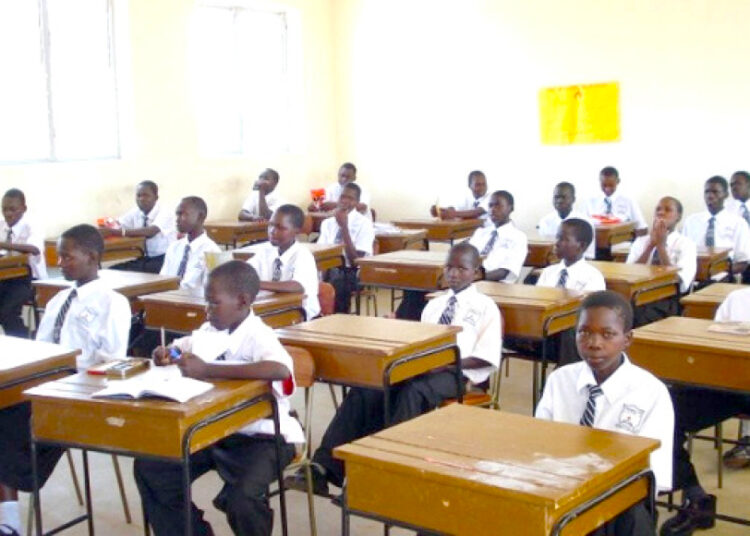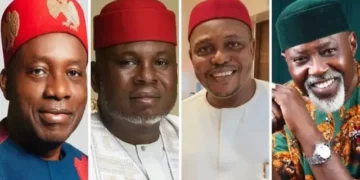Concerns have emerged regarding compliance with the guidelines set by the Federal Ministry of Education as more Nigerian private schools are adopting the British curriculum instead of the local one..
Teachers and other education experts have expressed fear that the lack of clear regulatory guidelines may lead to inconsistencies in implementation, thus affecting the overall educational landscape in Nigeria.
Despite ongoing regulatory uncertainty, the increasing adoption of the British curriculum in Nigerian schools has raised several concerns among stakeholders.
LEADERSHIP Friday gathered that the Federal Ministry of Education has specific guidelines regarding the use of curriculum in schools to ensure standardisation and quality of education across the country.
According to some guidelines, schools, especially private and international ones, must be registered and approved by the relevant educational authorities. This includes compliance with minimum standards set by the Ministry of Education, which covers infrastructure, teacher qualifications, and the curriculum used.
The guidelines emphasise the need for teachers to be trained in the curriculum they are teaching, whether it is a Nigerian or an international curriculum. Teachers in Nigerian schools are required to have appropriate qualifications and undergo continuous professional development.
However, even though the local Nigerian curriculum, developed by the Nigerian Educational Research and Development Council (NERDC), is tailored to reflect Nigeria’s cultural, social, and economic context, emphasising national history, culture, and values, schools are increasingly adopting British curriculum which is widely recognised for its rigorous academic standards, particularly through programmes such as the International General Certificate of Secondary Education (IGCSE).
Our reporter, who surveyed some schools within the Abuja metropolis, discovered that many top private schools had integrated elements of both curricula without investing significantly in teacher training to ensure educators are proficient in both curricula.
This trend has raised questions about the relevance of foreign curricula to local educational needs and cultural context, as private schools’ increasing adoption of the British curriculum has sparked significant concern among teachers and education experts.
Additionally, there are growing calls for stricter monitoring of private schools to ensure educational quality and consistency
In an interview with LEADERSHIP Friday, a teacher with one of the prominent private schools in Abuja, who did not want his name mentioned for fear of losing his job, said the rapid adoption of foreign curricula underscores the need for stricter monitoring and regulation of private schools in Nigeria.
He urged the government to hold private schools accountable to national educational standards, regardless of the curriculum they choose to adopt, even as he lamented that most schools do not employ teachers who do not have previous knowledge of teaching in a British school.
“Some of us looking for teaching jobs in Abuja find it difficult despite our experience. I’m a Mathematics teacher with many years of experience, but in most private schools, once they discover that you have not taught in a British school before, it becomes very difficult for them to employ you just because they want to copy British standards.
“Some schools in Abuja have merged Nigeria and British curricula under what they call ‘blended curriculum.’ The school where I presently work is running a blended curriculum without giving the teachers due training.
“Private schools have decided to be on their own, and no one in Nigeria is monitoring them. Once a proprietor establishes a school, he decides whether to operate American standards or whatever he wants without anyone questioning him,” the teacher added.
An education expert, Kenneth Ayu, states that the British curriculum may not adequately address the specific needs of Nigerian learners, resulting in students being less prepared to tackle local challenges and contribute effectively to their communities.
“The British curriculum, although comprehensive, often lacks content relevant to Nigerian history, geography, and civic education. This omission can lead to a disconnect between students and their national identity, potentially undermining their sense of belonging and responsibility toward their country,” he said.
Meanwhile, the Federal Ministry of Education has chosen to remain silent on the growing trend of Nigerian schools adopting the British curriculum.
When contacted on whether the ministry is aware of the situation and its stance on the issue, the director of press, Folasade Boriowo, said, “I will get back to you,” but had not responded as of the time of filing this report.





